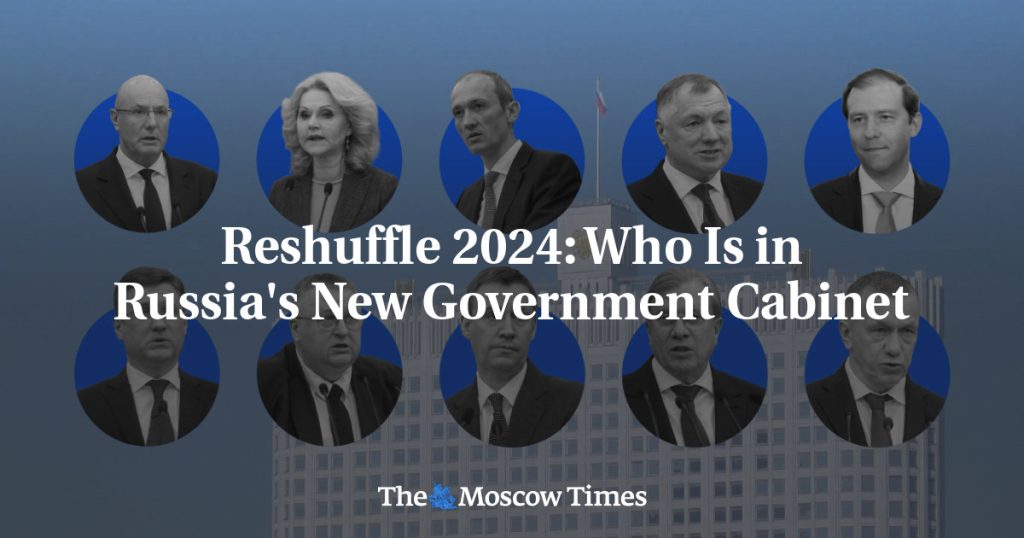Following President Vladimir Putin’s re-election for a fifth term on May 7, the Russian government has seen a reshuffle of ministers in various cabinet positions. Prime Minister Mikhail Mishustin, who was reappointed, submitted his nominations to the parliament, which were swiftly approved. While there was speculation about who would remain in their roles, the government largely stayed intact with the exception of Sergei Shoigu’s shocking ouster as defense minister. This reshuffle has led to new faces and changes in key positions within Mishustin’s cabinet.
One significant change is the elevation of Manturov to first deputy prime minister, taking over from Andrei Belousov. Manturov’s role focuses on ensuring technological leadership in key industries such as defense, aircraft manufacturing, and machine-tool building. Golikova, known for her work on Russia’s Covid-19 response, remains in charge of social policy, while Patrushev, a newcomer, will oversee agriculture and the environment. Chernyshenko will handle sport, tourism, and education, focusing on bringing up a harmoniously developed individual. Savelyev, another newcomer, will oversee transportation issues, with Novak continuing to oversee the energy industry along with economic policy.
Grigorenko, who serves as the chief of the government staff, is responsible for overseeing financial and digital development industries, as well as communication and antitrust policy. Khusnullin, a returning member of the cabinet, will oversee construction, with a focus on working with the Defense Ministry in the Russian-occupied territories of Ukraine. Overchuk will continue to oversee international cooperation, while Trutnev remains in charge of Russia’s Far East. These appointments reflect the government’s focus on key sectors and industries as it navigates various challenges and geopolitical issues.
The reshuffle also included new ministers, such as Tsivilyov replacing Shulginov as energy minister, Alikhanov taking over as industry and trade minister, Starovoit replacing Savelyev as transportation minister, Degtyarev stepping in as sports minister, and Lut taking over as agriculture minister. These new appointments bring a mix of experience and fresh perspectives to their respective roles within the government. The changes in the cabinet come at a time of geopolitical tensions and challenges for Russia, as it seeks to navigate internal and external pressures while advancing its national goals in various sectors.
Overall, the reshuffle in the Russian government reflects President Putin’s efforts to solidify his administration and address key issues facing the country. With a mix of experienced officials and newcomers in key positions, the cabinet aims to drive progress and development in key industries such as defense, agriculture, transportation, energy, and more. As Russia faces various challenges, including sanctions and geopolitical issues, the new cabinet members will play a crucial role in shaping the country’s future direction and addressing pressing issues affecting its economy, society, and international relations. The reshuffle marks a significant moment in Putin’s fifth term as president and sets the tone for his administration’s priorities moving forward.


